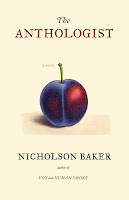
There have been a recent spat of Budweiser commercials promoting their new beer, Golden Wheat, which is supposed to be a German style, cloudy wheat beer (I'm not exactly sure why Budweiser thinks that their demographic wants a cloudy beer because their whole thing is, ya know, the opposite of that) and there has been something about the television commercials that I haven't quite been able to put my finger on, in terms of them not making sense.
If you aren't familiar with the tv spots, they involve a work place office romance between a human sized bottle of Bud Light (which is just a guy in a Bud Light bottle costume)and his love interest, a female human sized bundle of wheat (which is just a women with sexy legs in a bundle of wheat costume). Now, through the commericial narrative, provided by various interviews with their office co-workers, we come to understand that it was just a matter of time before Mr. Bottle of Bud and Miss Bundle of Wheat hooked up, cut to numerous shots of them bumping into eachother, doing the act of what can only be assumed as sex in the company elevator and also the beach for some reason. That premise sounds like classic Budweiser advertising but what I don't quite understand is that are we, the consumer and viewer, to believe that the current end result of their courtship is Golden Wheat? As in, is Golden Wheat their offspring?
Because what I believe is unclear but also insinuated by the good people at Budweiser, is that Golden Wheat is somehow a melding of the two separate entities, Bottle of Bud and Bundle of Wheat, creating a new product together. What is left out is the simple, implied reproductive science: Golden Wheat is the love child of Bottle of Bud Light and Bundle of Wheat. That can be the only logical conclusion. So if this is the case, that Bud Light and Bundle of Wheat copulated and then gave birth to this new Budweiser product, which is now being hawked at us, well, isn't this kinda of screwed up? Am I the only one that finds this particular marketing avenue bizarre? That because Bottle of Bud and Bundle of Wheat hooked up and screwed eachother in the elevator and on the beach, we, the thirsty public, can now reap the benefits and drink their kid? Come on, ya gotta admit, that's kinda weird.





